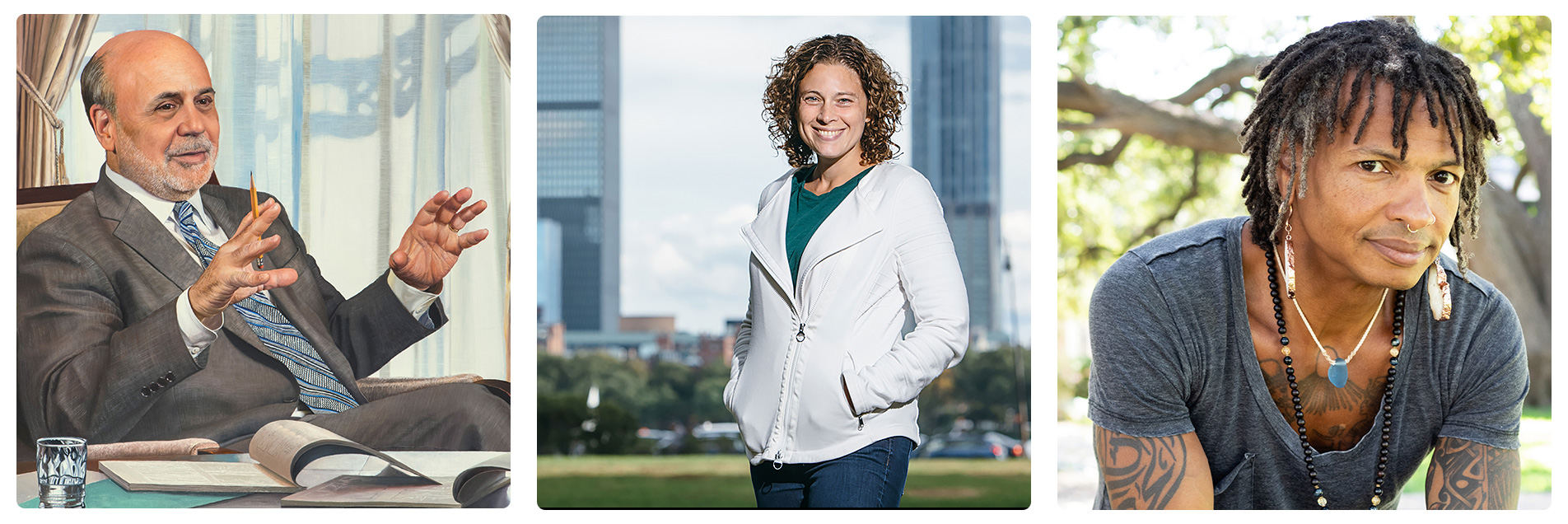A new crop of awards
MIT people win a Nobel and two MacArthurs.
Three members of the MIT community have been honored with some of the world’s biggest awards.
In October, Ben S. Bernanke, PhD ’79, shared the Nobel Prize in economics with Douglas W. Diamond and Philip H. Dybvig. Bernanke, who chaired the Federal Reserve from 2006 to 2014, was honored for his work showing how bank runs exacerbated the Great Depression. After many banks collapsed, the Nobel citation states, “valuable information about borrowers was lost and could not be recreated quickly. Society’s ability to channel savings to productive investments was thus severely diminished.”
In September, chemistry professor Danna Freedman and Martin Luther King Jr. Visiting Scholar Moriba Jah received MacArthur Fellowships, often referred to as “genius grants.”

Freedman, a former MIT postdoc who joined the faculty in 2021, designs molecules that can function as quantum units, or qubits. One direction she hopes to pursue with her $800,000 grant is working with scientists from fields such as neurobiology or Earth sciences on quantum sensors, in which some particles are in such a delicately balanced state that they are affected by minuscule variations in their environment.
Jah, an associate professor of aerospace engineering and engineering mechanics at the University of Texas at Austin, is working on a joint research program to increase resources and visibility for space sustainability. He is also helping to host the AeroAstro Rising Stars symposium, which highlights academics from backgrounds underrepresented in aerospace engineering.
Keep Reading
Most Popular
Large language models can do jaw-dropping things. But nobody knows exactly why.
And that's a problem. Figuring it out is one of the biggest scientific puzzles of our time and a crucial step towards controlling more powerful future models.
How scientists traced a mysterious covid case back to six toilets
When wastewater surveillance turns into a hunt for a single infected individual, the ethics get tricky.
The problem with plug-in hybrids? Their drivers.
Plug-in hybrids are often sold as a transition to EVs, but new data from Europe shows we’re still underestimating the emissions they produce.
Stay connected
Get the latest updates from
MIT Technology Review
Discover special offers, top stories, upcoming events, and more.